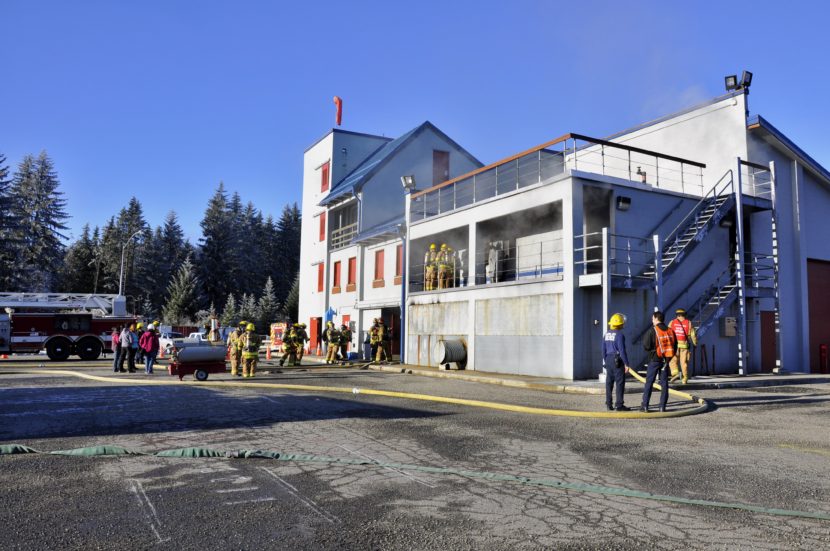
Juneau authorities say a type of chemical that has been a growing concern for communities across the country has been found at the city’s fire training center.
The chemical was found in both soil and water samples, but because most nearby residents appear to use the city water supply, the city’s Director of Engineering Mike Vigue said there is no known risk to Juneau residents’ drinking water.
“The biggest priority is to make sure that nobody is accessing a well for drinking water that shows contamination from these chemicals,” Vigue said.
The chemical, PFOS, is one of a group of manmade chemicals known as PFAS found in some firefighting foams and other consumer products.
Research suggests the chemicals are dangerous because they accumulate in the body over time.
Vigue said they tested for six of the chemicals. While PFOA was also detected, he said only PFOS exceeded the threshold for unsafe amounts.
In Gustavus and at other sites around the state, these chemicals have leached into the groundwater, affecting nearby wells.
The Alaska Department of Environmental Conservation asked the city to test the soil and groundwater at the Hagevig Fire Training Center on Sherwood Lane to check for contaminants.
Juneau’s municipal water supply comes from Last Chance Basin and Salmon Creek reservoir.
Both sources are miles away from the contaminated site.
Vigue said a city contractor, Cox Environmental, will reach out to property owners in the surrounding area to determine if they have wells on their property.
After that, they will do further testing to determine the extent of the contamination and whether any clean-up needs to happen.
Residents who use private wells in the area should reach out to the city.
The full report will be posted on the DEC’s website when finalized.
